Korea Republic returned to the field this week for the first time since their ignominious exit from the AFC Asian Cup and the messy fallout that has followed, which not only saw Jurgen Klinsmann lose his job, but also saw the team’s two star players involved in a brawl that descended into an ugly public dispute that threatened to jeopardise their immediate future.
And if they thought the worst was behind them they were mistaken, with their 1-1 draw with Thailand this week in the latest round of World Cup qualifying continuing a miserable seven weeks since their semi-final defeat at the AFC Asian Cup.
The 43 days since their unceremonious exit has exposed systemic leadership issues within the Korea Football Association, starting from the top with it’s president, Hyundai scion, Chung Mong-gyu.
In charge of the KFA since 2013, the 63-year-old has become a controversial figure within Korean football for what people describe as a dictatorial leadership style and questionable decision making.
The fans made their feelings known in no uncertain terms last night with numerous banners and flyers around the Seoul World Cup Stadium demanding Chung stand down, with banners also targeting other senior KFA officials including vice-president Lee Seok-jae and head of it’s technical department, Hwang Bo-gwan.
As rumours swirled pre-match that KFA were deleting anti-Chung replies from their Instagram accounts, a claim they denied, footage emerged after last night’s draw showing officials inside the Seoul World Cup Stadium aggressively removing one of the many ‘Chung Out’ banners being display, leading to a scuffle with the fans responsible.
It only adds to the atmosphere of toxicity surrounding Korean football at the moment, and with Klinsmann now gone the focus of attention is now turning to the KFA president and his role in their declining fortunes.
With growing discontent among the fans, can Chung continue to maintain his iron like grip on power? Or should he fall on his sword and hand the reins over to a fresh face to take Korean football forward?
Over the past weeks The Asian Game has spent time talking to people in Korea – on and off-the-record – to ask whether the businessman is the right person to be leading the KFA into the future.

Power & Influence – who is Chung Mong-gyu?
Before we get into all the details, it is important to take stock and understand exactly who is Chung Mong-gyu and how he came to assume the power that he has.
Born on 14 January 1961, he was born into the Hyundai family dynasty, one of three children for Park Young-ja and Chung Se-yung. His father, Chung Se-yung, was the brother of Chung Ju-yung, a Korean entrepreneur and the founding father of the entire Hyundai operation in post-war Korea in 1947.
Together the brothers created Hyundai Motor Corporation (HMC) in the 1960s, with Chung Se-yung acting as it’s inaugural chairman for a period of 30 years, turning the small Korean car maker into one of the world’s largest car manufacturers and the wider Hyundai corporation into one of the nation’s most powerful and influential Chaebols; the English transliteration of the Korean term ‘재벌’ to describe the large, family-owned conglomerates that dominate every aspect of Korean society.
Hyundai is regarded as the second largest Chaebol in the country, behind only Samsung and ahead of SK Group and LG Group.
Embed from Getty ImagesChung Mong-gyu, who has an elder and younger sister, was born into the family business, joining HMC in the late 1980s before briefly taking over as chairman from his father in 1996.
His first experience in football also came in the 1990s as chairman of both Ulsan Hyundai (now Ulsan HD) (1994-96) and Jeonbuk Hyundai Motors (1997-99), during which time he also became chairman of HDC Hyundai Development Company.
He continued his involvement with football in 2000, becoming chairman of Busan I-Park, a club owned by HDC Hyundai Development Company.
Remarkably, it’s a position he continues to hold, despite the obvious conflict of interest, not only as the serving KFA president, but also previously when he served as K League president between 2011-13.
But it speaks to the power he and his family have in the running of football. Conflict of interest or not, few are brave enough to put their head above the parapet to question or challenge him, as respected Korean football reporter, Steve Han, explained.
“It’s not so much that Chung Mong-gyu himself is a ‘big name’ in Korea,” he said, “he’s honestly of much lower profile than former KFA president Chung Mong-joon, who is an older cousin of his.
“But that he’s a member of the Hyundai family makes it difficult for anyone in Korean football to publicly take a stance against him.”
Embed from Getty ImagesAside from a brief four-year spell between 2009 and 2013, when Cho Chung-yun was KFA president, who still has links to Hyundai as a former coach of Hyundai Horangi (now Ulsan HD), Korean football has been under Hyundai family rule since the early 1990s.
First it was Chung Mong-joon, a cousin of Chung Mong-gyu, the sixth son of Hyundai founder Chung Ju-yung, who also held senior positions within the FIFA and the Asian Football Confederation and was an influential player in the world of football politics.
“Chung Mong-joon was a highly famous figure across any industry in Korea, was good looking, eloquent, and was active in politics as well,” Han explained.
He held power for four terms from 1993 to 2009, overseeing a period of rapid transformation for Korean football that included hosting the FIFA World Cup in 2002 and the burst of popularity that followed, but was banned from all football related activity for five years by FIFA in October 2015 for ethics violations related to Korea’s bid for the 2022 FIFA World Cup. The Court of Arbitration for Sport later reduced the ban to 15 months.
Chung Mong-gyu assumed the KFA presidency in 2013, and is reportedly set to seek a fourth term of his own, despite previously attempting to pass a resolution that would limit any president to three terms in office.

Past Controversies
The fallout to Korea’s Asian Cup failure is far from the first controversy Chung Mong-gyu has had to navigate throughout the past few years.
Just 12 months prior he, along with the rest of the KFA executive, made the decision to pardon 100 individuals, including those that had been embroiled in the country’s infamous match fixing scandal of 2011 – one of the ugliest periods of Korean football from which the sport is still trying to recover.
The decision, which was announced out of the blue just an hour before a scheduled friendly against Uruguay last March, prompted an immediate and fierce backlash from fans and media alike.
Embed from Getty ImagesThe KFA, for their part, said the decision was a ‘reward’ for the country’s success at the World Cup a few months prior. Their statement read:
“We congratulated ourselves on advancing to the World Cup 10 times in a row and advancing to the round of 16 in the World Cup in Qatar, which we achieved last year, and reflected the opinions of the field that proposed an amnesty for harmony and a new start in the football world. There is also the purpose of giving another chance to footballers who are judged to have self-reflection and self-reflection for a long time.”
So strong was the response to their decision they backflipped three days later and the KFA’s vice-presidents and entire board of directors, which included legendary former players Lee Young-pyo, Lee Dong-guk and Cho Won-hee, tendered their resignations in disgrace,.
All, that is, except for Chung himself.
“As someone with the biggest responsibility in this situation, I thought long and hard about stepping down,” Chung said at the time.
“But since I have 20 months left on my term, I decided that staying on and stabilising the situation was the best I could do for Korean football. I wanted to minimise the administrative vacuum and put together a new leadership group as soon as possible.”
He blamed the decision on a lack of communication.
The KFA has also lost access to their national training centre in Paju, near the North Korean border, as Steve Han explains.
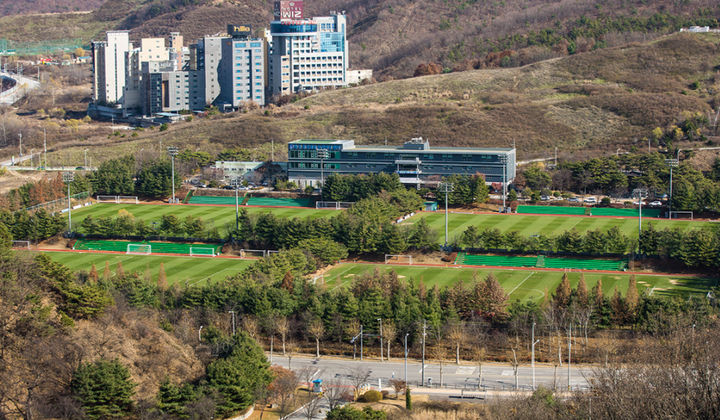
“Since October of last year, Korea lost their national team training base in Paju, as they’ve had a dispute with the local government and couldn’t renew their lease,” he said.
“When the players were called into the camp in Korea last December to start preparing for the Asian Cup, they were restricted to training indoor at their hotel in Seoul. They were only able to train on the pitch when they flew out to UAE in January.
“The KFA has invested funds to build a new training base in Cheongju, but construction has been going through several delays already and will not be completed for another couple of years.”
More serious, however, are the tragic accidents that happened on his watch as chairman of HDC Hyundai Development Company.
Regarded as one of the country’s biggest property developers, known for it’s IPark brand of apartment buildings, the company suffered two tragic events, both in Gwangju, in 2021 and 2022, when two apartments buildings they were working on collapsed. More than a dozen people lost their lives and the company had it’s business licence suspended for eight months
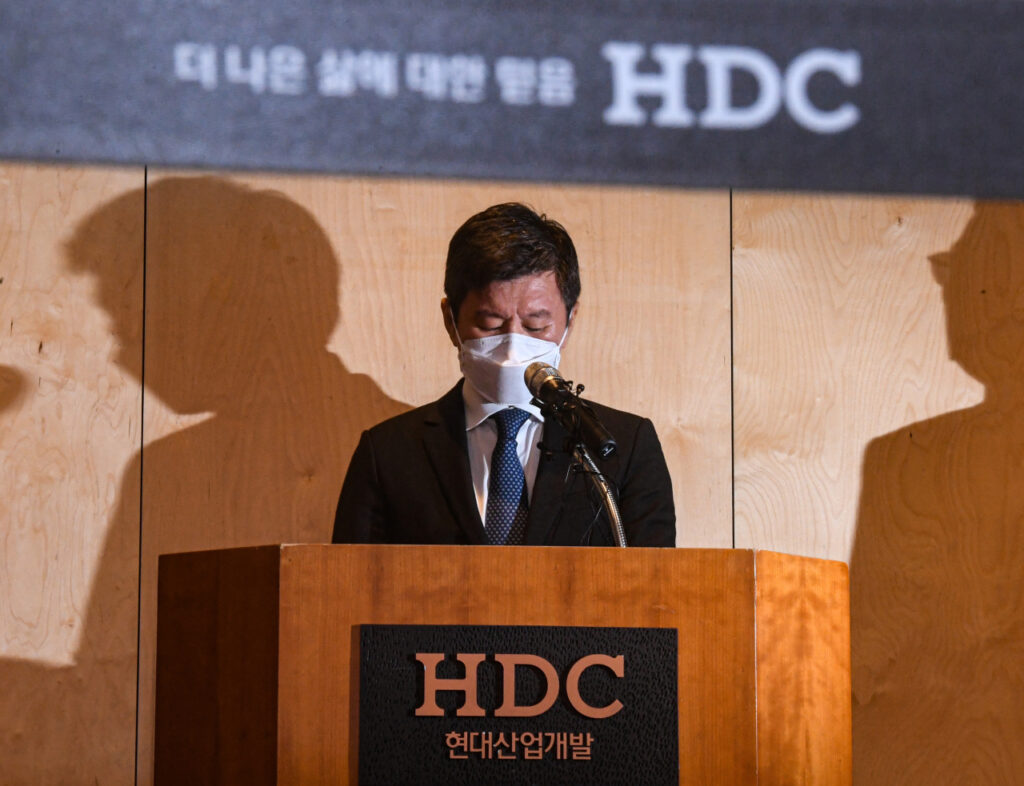
For it to happen once is a terrible tragedy, to happen twice is borderline negligent.
“I apologise to the family members of the victims in the accident in Gwangju and to the public,” Chung said at the time.
“If any issue is found during the investigation, HDC will not only terminate the contracts with buyers but also consider complete demolishment and reconstruction of the buildings.
“Our business and apartment brand IPark have been built on the public trust since 1976 when we built our first apartment building in Apgujeong. I deeply regret that HDC has brought disappointment to the public with two accidents occurred in Gwangju.
“We will do everything we can to recover the credibility.”
The twin tragedies were major scandals in Korea, and a damaging blow to Chung’s and HDC’s reputation.
At one time HDC Hyundai Development Company was ranked in the top five construction firms by Korea’s Ministry of Land, Infrastructure and Transport, ranking as high as fourth in 2004. They are now outside the top ten, coming in 11th in the 2023 report.
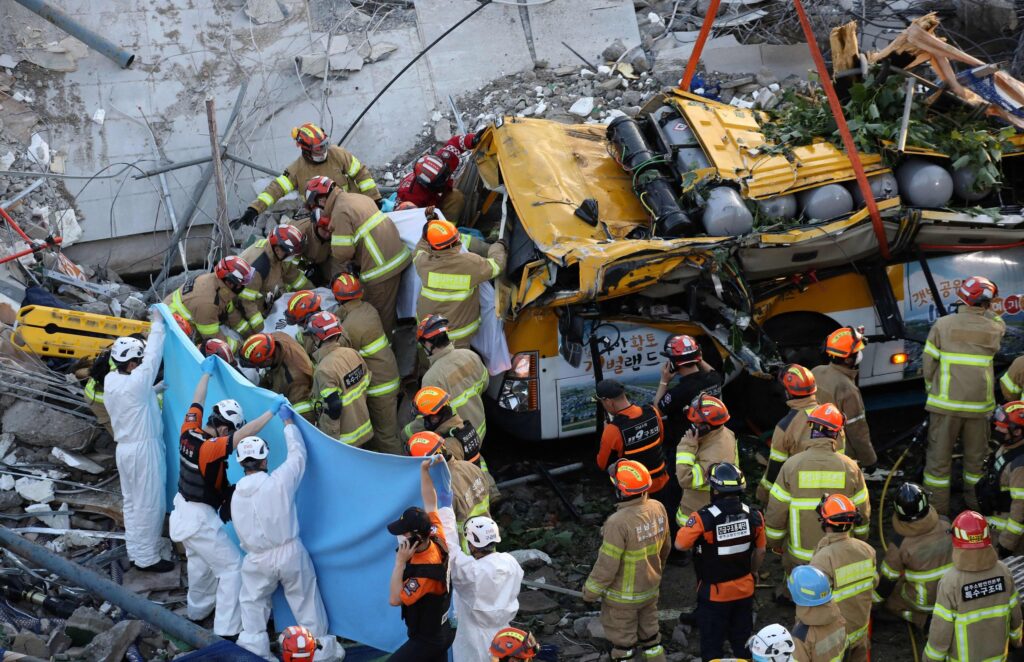
“It’s not just Korean football he is destroying, it is HDC too,” remarked one senior Korean sports executive, who spoke to The Asian Game on the condition on anonymity.
Amid the fallout he stood down as chairman of HDC Hyundai Development Company, but remarkably was able to remain as chairman of their parent company, HDC Holdings, which owns 41.5 percent of HDC Hyundai Development Company. He continues to hold that position to this day.
Further, HDC are also mired in an ongoing legal battle after a failed attempt to take a controlling stake in beleaguered Korean airline, Asiana Airlines, which left them almost $200 million out of pocket.
The Seoul Central District Court rejected their claim to have $190 million refunded, an amount they had previously paid as part of the acquisition, and ordered they pay Kumho E&C, the parent company of Asiana Airlines, more than $1 million in compensation for breach of contract.
HDC has appealed that decision and the case continues.

The Hyundai Influence
Wherever you look in Korean football, there are links to Hyundai left, right and centre. And plenty of conflicts of interest for good measure.
Not only is Chung Mong-gyu president of the KFA whilst being chairman of Busan IPark, who play in K League 2, the current K League president, Kwon Oh-gap, is president of Hyundai Heavy Industries, who own Ulsan HD, the two-time defending K League champions, for whom he is also chairman.
“This reflects that sports leagues in Korea is more of a CSR component for conglomerates, not a commercial entity,” said the sports executive that we spoke to.
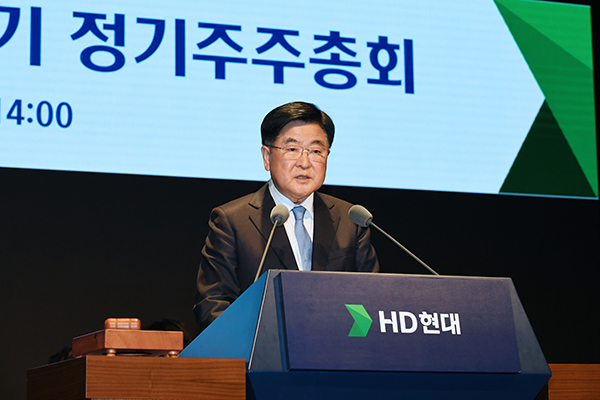
While Hyundai has undoubtedly contributed significantly to the development of Korean football over many decades, pouring in hundreds of millions of dollars at all levels of the game, there are questions about their motivations and whether football is still benefiting from their involvement.
“The KFA will always be led by someone well connected in politics and a member of a Chaebol,” said one former KFA employee, also speaking to The Asian Game on the condition of anonymity.
“Football is just the vehicle to consolidate this power. Football, politics and business are inextricably linked within the KFA and politics and business will always trump the best football decision.
“Senior leadership is concerned primarily with optics over substance and is easily swayed by the media and even the fans. The culture dictates that mistakes must lead to resignations, so everyone places self-preservation above making the right footballing decision and proceeds with a safety-first mentality. This kills innovation and the development of a long-term vision.
“There are people within the leadership with excellent football minds and clear visions for how Korean football can thrive and progress. However, there is great pressure to maintain the status quo and maintain the current power structures at the expense of change.”
But if not Hyundai, then who? And is it better the devil you know?
Embed from Getty Images“Hyundai has been in control of the KFA since I’ve been a kid,” journalist Steve Han said.
“As much of a mess the KFA may look right now, I honestly have no idea what they’d look like without (Hyundai) and can’t say they’d be better off.
“It’s not that other influential figures in Korea don’t want to challenge Chung for his seat at the KFA, but they’re definitely reluctant to challenge Hyundai.”
But, said the Korean sports executive we spoke with, the time is right for the KFA to separate themselves from the sphere of Hyundai influence.
“When it comes to football, KFA back then might have needed financial help or political help and support from the Chaebols,” they explained.
“But now are we in the same page? I don’t think so. Because KFA is actually one of the very few, maybe the only association that can survive on their own.
“They actually receive a good amount of money, I believe around $20 million from the Sports Toto, which is the only legal sports betting in Korea.
Embed from Getty Images“(Plus) all the huge amounts of the gate receipts and then TV rights from multiple qualifications, for example, and all the star power. Everybody lately has been talking about football in Korea, and I think that shows that there’s a big interest in not only just Sonny, but also Lee Kang-in, Hwang Hee-chan, Kim Min-jae, all these star players.
“So, these are good reasons why I think KFA can get away from the Chaebols, but on the other hand, because people are so used to having support from these Chaebols, it may be a little difficult and also there may not be many people who want to run for for the seat.
“So it’s difficult, but I think there is a possibility of getting away from all these Chaebols, especially for KFA and eventually it has to happen.”
Who, though, is going to be brave enough to challenge the hegemony?

The Klinsmann Decision
Jurgen Klinsmann was, in a surprising move, appointed manager of Korea Republic on 27 February 2023 on a four-year deal that would see him through until the end of the FIFA World Cup 2026.
He had not held any coaching position since departing Hertha Berlin in early 2020 after just ten weeks in charge, and most recently had been active on FIFA’s technical study group alongside former Korean international, Cha Du-ri.
How the decision to appoint him came about, however, reveals plenty about the inner workings of the KFA and the power held by Chung Mong-gyu.
Embed from Getty ImagesWhen Paolo Bento announced he wouldn’t continue with Korea past the FIFA World Cup of 2022, the search began in earnest for his successor.
The responsibility for that search notionally fell upon the KFA’s internal National Team Committee (NTC), which ordinarily is responsible for all national teams operations and management.
German Michael Muller, who was previously head of the KFA’s Technical Development Committee, was made head of the NTC in January 2023, the first foreigner to be appointed to the prestigious position.
Muller, 58, arrived in Korea in 2018, after being recommended to the KFA by former national team star, Cha Du-ri, who was left impressed by the former DFB coaching instructor after completing his coaching badges in Germany.
It was another former Taegeuk Warriors star, Park Ji-sung, in his role as youth football development strategy chief, back in 2018, that appointed Muller as a technical director, primarily to act as a instructor and adviser to KFA registered coaches.
Upon his promotion to the NTC, Muller made it very clear the process his committee would undertake to find a new national team manager.
“The new coach should be in line with the KFA philosophy, of course,” he said at his introductory press conference at KFA House in Seoul.
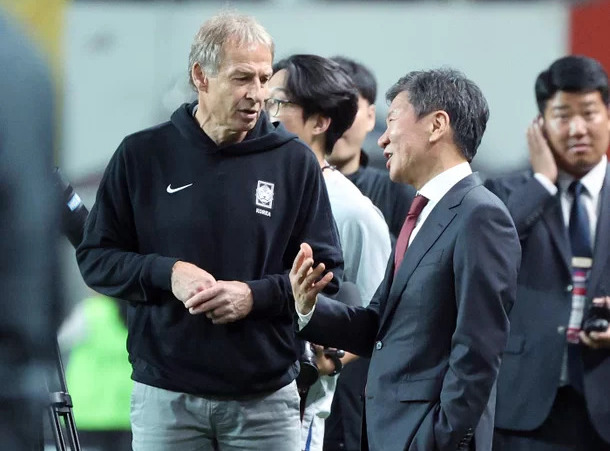
“It’s always crucial as a football association that we’re aware of what we want. The next step is we’re aware of what we need.
“We’re thinking in all directions. The doors in each direction are open. I can’t answer where the new coach is coming from. I want to work sustainable and holistic. I don’t want to be a part of any speculation at this moment.
“I appreciated to get information in advance that the former committee already discussed. But I need to think about this first. I need to make some decisions, and I will use my network as well.”
Chung Mong-gyu, however, had other ideas.
The NTC ran it’s normal recruitment process and The Asian Game understands recommended a Spanish manager, believed to be Roberto Moreno, for the job.
Moreno had previously, albeit briefly, coached the Spanish national team in 2019, as well as Monaco and Granada, and was a former assistant to Luis Enrique at Roma, Celta Vigo and Barcelona.
But Chung had made the decision to appoint Klinsmann. The decision was final. Members of the NTC, it’s widely reported, were only informed 30 minutes prior to the announcement being made.
“It shows how little he knows football,” an exasperated Han said.
Embed from Getty Images“For those who’ve followed him long enough, it isn’t that difficult to connect the dots. Klinsmann was a global superstar as a player, managed big teams like Germany, Bayern Munich, and even the US, and Chung loves the US and has said numerous times that the K League should model itself after MLS.
“The image of having a star manager like Klinsmann going to the World Cup with marketable Korean stars like Son, Kim Min-jae, and Lee Kang-in was, apparently, the blueprint for success.”
Except that it wasn’t. Korea flopped at the Asian Cup and Klinsmann didn’t even last a full year in the job.

Asian Cup Fallout
While a semi-final exit, on paper, looks to be a respectable result, it’s one the flatters a side that won just one game in regular time and needed last minute heroics to get past both Saudi Arabia and Australia in the Round of 16 and quarter-finals respectively.
Failing to beat Jordan – twice – and drawing 3-3 against Malaysia are results that no Korean manager can survive, especially when the performances were as poor as the scorelines.
The sight of Klinsmann smirking and smiling after those results did little to endear him to the Korean faithful and was the final nail in the coffin, feeding the narrative that it was a job Klinsmann didn’t take seriously.
Ultimately, there was only one decision the KFA could make and on 16 February 2024, less than a full year after he was appointed, Klinsmann was sacked by the KFA, a decision that would cost the association millions of dollars given Klinsmann’s reported $2.2 million annual salary, an amount Chung admitted he may pay out of his own pocket.
Embed from Getty Images“We will have to discuss contract issues with lawyers,” Chung said. “If there is any additional financial burden on the KFA, I will explore ways in which I can make contributions as president of the organisation.”
Sitting in his luxurious home, in the Orange County city of Irvine, about 40 minutes south of Los Angeles, staring down the barrel of a Zoom call was a fitting way for Klinsmann to go out given the complaints of him being a work-from-home coach following his decision to remain living in California rather than relocate to Seoul as so many of his predecessors have done.
German outlet Der Spiegel reported that the 59-year-old preferred living in California given his penchant for Sunday league football, and his concerns that the KFA training base in Paju was too close to the North Korean border. Make of that what you will.
It says a lot about his character that even when his job was on the line he still refused to spend any significant time in Seoul, rushing back to LA at the first opportunity before the Asian Cup post-mortem had even been completed.
If any was needed, it was further proof that this was a marriage that simply would not work and had gone as far as it needed without risking even further damage. His departure sparked celebrations rather than sorrow on the streets of Seoul.
Michael Muller, meanwhile, was made a scapegoat for the failure of his countryman to deliver the country its first Asian Cup in 64 years despite, apparently, having no official involvement in his appointment, and was moved on from his role into another department within KFA.
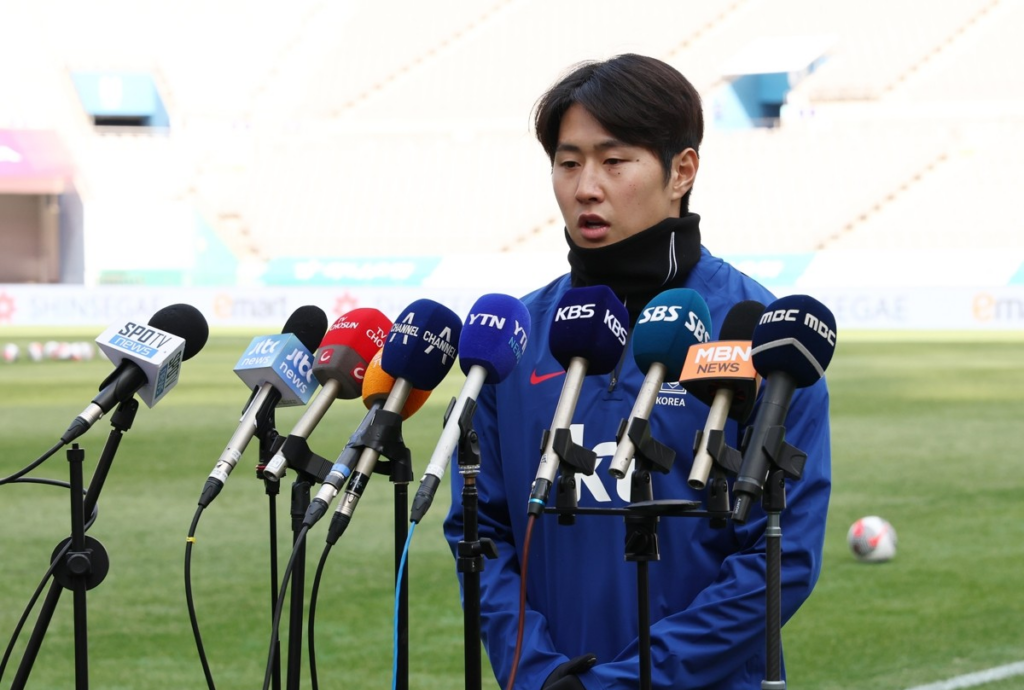
If that wasn’t enough, the team’s two star players, Son Heung-min and Lee Kang-in, were reportedly involved in an altercation the night before their semi-final against Jordan over a game of table tennis, a rumour the KFA were unusually quick to validate and give oxygen too.
That oxygen turned a spark into an out-of-control wildfire as Lee faced calls for suspension, public pressure on sponsors to drop him and even potential lawsuits. Yes, lawsuits.
It took two public apologies, and a social media post from Son Heung-min showing the pair reconciling to bring some calm to the situation. But the damage had already been done, Lee has suffered a major reputational blow that will take years to recover from.
This week, ahead of the game against Thailand, he was forced to stand in front of the cameras and apologise – again – for his role in the fracas.
It’s a sorry state of affairs for a team that just 18 months ago made the Round of 16 at the World Cup and were brimming with elite talent playing at the highest levels of the game in Europe.
Quite who leaked the story of the bust up over ping pong, which first appeared in the UK tabloid, The Sun, we will probably never know.
Embed from Getty ImagesOne school of thought is that it was from Klinsmann’s camp, designed to illustrate a fractured playing group which would help explain away their failure.
Another is that the Chung himself, or the KFA, leaked the details to take the heat off themselves amid questions of their own failure in appointing Klinsmann in the first place.
That they were so quick to validate the leak was extremely unusual for an organisation that likes to keep so much information in-house.
“It’s too coincidental that this story broke NOW when there’s a series of meetings at the KFA to decide the future of the national team,” journalist Steve Han wrote on X (formerly twitter).
“The KFA could’ve easily ignored the report in the UK media without consequence. Yet, they chose to openly contribute to fueling a controversy.
“Every Korean player I’ve spoken to over the last 16 years told me that the “unwritten rule” within the national team camp is: “Whatever happens here, stays here.” The KFA has voluntarily broken this promise now. Why should the players continue to remain silent to shield the KFA?”
Embed from Getty Images
What happens next?
For the time being Chung Mong-gyu remains in his position at the top of the KFA, but pressure is beginning to mount as evidenced by the protests at this week’s game against Thailand.
The 63-year-old, however, insists he is going nowhere.
“We’ll take further steps to analyse reasons for the situation we’re in, and come up with measures accordingly,” Chung said in February when asked about his own future after the dismissal of Klinsmann as coach.
“As the leader of the organisation that runs national football teams, I will humbly accept any criticism and I’d like to apologise to football fans.”
Rather than stand down, it appears he is, in fact, readying the ground for a fourth term in office, despite previously advocating for a limit of three terms for the position of KFA president.
“During our general assembly in 2018, I changed articles of association so that a KFA president could only have three terms,” he said earlier this year when asked about his future.
“However, the Korean Sport & Olympic Committee and the sports ministry did not approve of the change. I will let that answer the question about my future.”
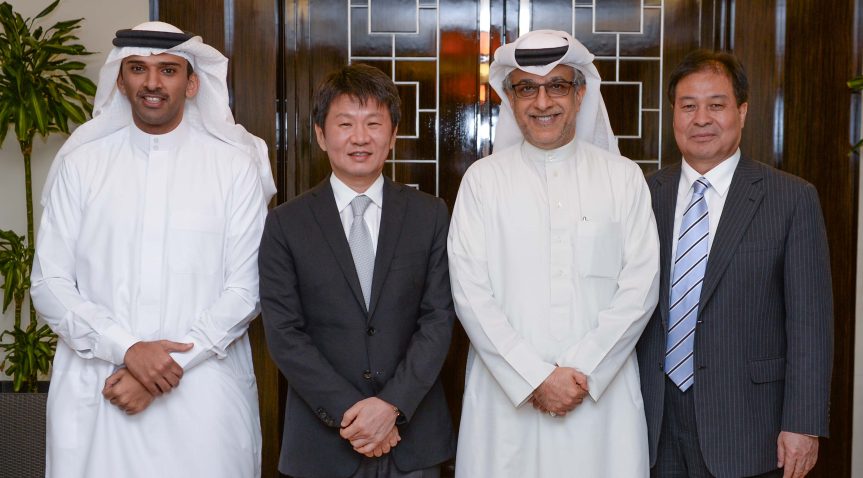
Also on the horizon is a return to the AFC executive committee.
Having been elected onto the ExCo in 2016, also earning a seat on the powerful FIFA Council, he failed in his re-election bid in 2019, but is the sole nomination from the East Zone ahead of the AFC Congress in Bangkok in May.
Such a move only consolidates his power in Korea and makes any moves against him even unlikelier to eventuate or succeed.
But how welcome will his return to the corridors of power be with AFC powerbrokers?
Ahead of the AFC Congress in 2019, an election he lost, he accused Qatar and the Philippines of improper conduct, alleging Saoud Al Mohannadi had been given favourable treatment.
According to one Asian football insider, it is just one of a number of moves that have made Chung unliked by his ExCo colleagues.
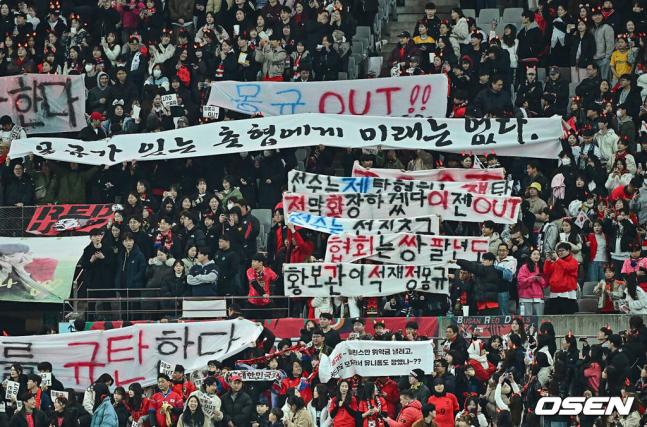
“He is not well liked among future, and former, colleagues on the ExCo,” said the insider, who only spoke on the condition of anonymity.
“KFA has been poor diplomatically for over a decade since Chung Mong-joon was suspended. Their forceful approach to diplomacy has caused them to put a number of noses out of joint.
“Calling out bad behaviour or questioning authority in Asian business occurs behind closed doors, not publicly. Going public is generally a last resort, and just demonstrates your lack of power and/or naivete.
“KFA demonstrated this when they challenged some financial decisions at a recent AFC Congress.”
While there is a train of thought this his return to the boardroom will be a good thing for Korea, returning them to a position of influence in Asia, it appears such is the dislike for Chung that his position on the ExCo might actually be a hindrance rather than a help for KFA and Korean football.
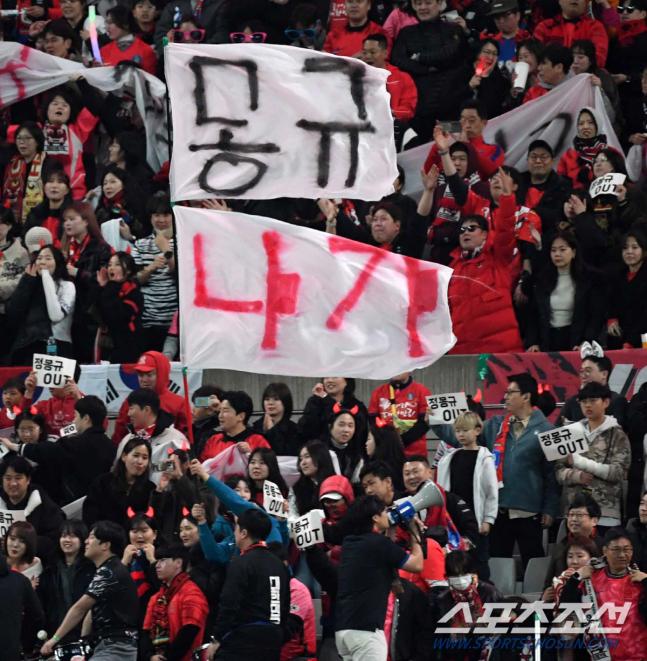
“They will gain advance warning of key AFC decisions and issues that arise,” the insider explained.
“However, they are unlikely to have any influence. KFA has had zero influence over AFC affairs since Chung Mong-joon was suspended, and they have craved regaining that. It simply won’t happen with Chung Mong-gyu. He doesn’t have the personality, gravitas, or diplomatic skill of Chung Mong-joon.
“The dislike for KFA was the primary reason the 2023 Asian Cup was held in Qatar, as opposed to East Asia, where it should have been held. Logically they would have made sense to host. No one wanted to deal with them, or provide them with any ‘prize’.”
As frosty as the reception might be, it’s unlikely to faze Chung. He’s become accustomed to navigating hostile situations in recent years.
Where it leaves Korean football, however, is an entirely different matter and right now, with him at the top, it’s not in a healthy state.
The post SPECIAL FEATURE: The power ‘destroying’ Korean football appeared first on The Asian Game.
 | 𝑺𝒉𝒐𝒄𝒌𝒊𝒏𝒈 𝒇𝒐𝒐𝒕𝒂𝒈𝒆 𝒐𝒇 𝑲𝑭𝑨 𝑻𝒉𝒖𝒈𝒔 𝑺𝒆𝒊𝒛𝒊𝒏𝒈 𝒂𝒏 𝒂𝒏𝒕𝒊-𝑪𝒉𝒖𝒏𝒈 𝑴𝒐𝒏𝒈-𝒌𝒚𝒖 𝒃𝒂𝒏𝒏𝒆𝒓
| 𝑺𝒉𝒐𝒄𝒌𝒊𝒏𝒈 𝒇𝒐𝒐𝒕𝒂𝒈𝒆 𝒐𝒇 𝑲𝑭𝑨 𝑻𝒉𝒖𝒈𝒔 𝑺𝒆𝒊𝒛𝒊𝒏𝒈 𝒂𝒏 𝒂𝒏𝒕𝒊-𝑪𝒉𝒖𝒏𝒈 𝑴𝒐𝒏𝒈-𝒌𝒚𝒖 𝒃𝒂𝒏𝒏𝒆𝒓 


















